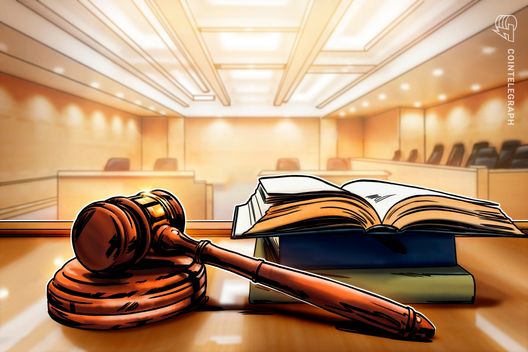
A New York jury was unable to succeed in a verdict within the case of Anton and James Peraire-Bueno, the MIT-educated brothers accused of fraud and cash laundering associated to a 2023 exploit of the Ethereum blockchain that resulted within the removing of $25 million in digital belongings.
In a Friday ruling, US District Choose Jessica Clarke declared a mistrial within the case after jurors didn't agree on whether or not to convict or acquit the brothers, Inside Metropolis Press reported.
The choice got here after a three-week trial in Manhattan federal court docket, leading to differing theories from prosecutors and the protection relating to the Peraire-Buenos’ alleged actions involving maximal extractable worth (MEV) bots.
A MEV assault happens when merchants or validators exploit transaction ordering on a blockchain for revenue. Utilizing automated MEV bots, they front-run or sandwich different trades by paying increased charges for precedence.
Within the brothers’ case, they allegedly used MEV bots to “trick” customers into trades. The exploit, although deliberate by the 2 for months, reportedly took simply 12 seconds to internet the pair $25 million.
In closing arguments to the jury this week, prosecutors argued that the brothers “tricked” and “defrauded” customers by participating in a “bait and change” scheme, permitting them to extract about $25 million in crypto. They cited proof suggesting that the 2 plotted their strikes for months and researched potential penalties of their actions.
“Girls and gents, bait and change isn't a buying and selling technique,” mentioned prosecutors on Tuesday, in response to Inside Metropolis Press. “It's fraud. It's dishonest. It's rigging the system. They pretended to be a reputable MEV-Increase validator.”
Associated: MEV bot exploit heads to US court, testing crypto’s legal gray zones
In distinction, protection attorneys for the Peraire-Buenos pushed back against the US government’s theory of the 2 pretending to be “trustworthy validators” to extract the funds, although the court docket finally allowed the argument to be introduced to the jury.
“That is like stealing a base in baseball,” mentioned the protection staff on Tuesday. “If there’s no fraud, there’s no conspiracy, there’s no cash laundering.”
What’s at stake for the crypto business following the decision?
Although the case ended with no verdict, the mistrial has left the crypto business divided, with many observers debating the authorized and technical implications of treating MEV-related exercise as a possible legal offense. Crypto advocacy group Coin Middle filed an amicus brief on Monday after opposition from prosecutors.
“I don’t suppose what’s within the indictment constitutes wire fraud,” said Carl Volz, a companion at legislation agency Gunnercooke, in a Monday op-ed for DLNews. “A jury might conclude otherwise, but when it does, it’ll be as a result of the brothers googled stupidly and talked an excessive amount of, for too lengthy, with the fallacious individuals.”
Journal: Bitcoin may drop 70% before $1M, MEXC’s ‘white whale’ apology: Hodler’s Digest, Oct. 26 – Nov. 1
This can be a growing story, and additional info will likely be added because it turns into out there.





